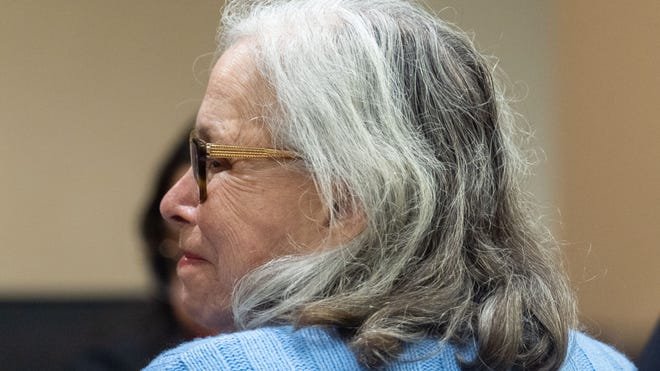
By The General Justice Lawyer, June 30
New York, USA — Jury deliberations in the United States v. Sean “Diddy” Combs trial began today, June 30, marking the next critical phase in the federal sex-trafficking and racketeering trial.
After seven weeks of testimony and Friday’s marathon closing arguments, Judge Arun Subramanian formally “charged” the jury delivering the detailed legal instructions that will guide their decision-making before sending the panel of twelve into private deliberations at 11:30 a.m. ET.
Instructions and Legal Framework
In a closely watched two-hour session, Judge Subramanian walked jurors through the five criminal counts they must consider:
1. Racketeering Conspiracy (Count 1) – Jurors were reminded that the government must prove an agreement between two or more individuals to conduct a criminal enterprise dubbed the “Combs enterprise”and that Combs knowingly joined and committed at least two predicate acts (such as kidnapping, arson, or drug distribution) within a ten-year span. Crucially, no formal written agreement is required; a shared, even unspoken, understanding suffices.
2. Sex Trafficking of Cassie Ventura (Count 2) – Alleging forced or coerced commercial sex between 2009 and 2018.
3. Transportation for Prostitution (Ventura and Others) (Count 3) – Cross-state transportation of Ventura and other “escorts” during the same period.
4. Sex Trafficking of “Jane” (Count 4) – A second sex-trafficking count covering alleged coercion of an accuser who testified under a pseudonym from 2021 to 2024.
5. Transportation for Prostitution (“Jane” and Others) (Count 5) – Similar transportation charges for the later timeframe.
The judge emphasized that each count must be evaluated on its own merits. “The indictment itself is not evidence,” he reminded the panel, and jurors must reach a separate verdict on each charge guilty or not guilty, without allowing a finding on one count to influence another.
Defining Key Elements
Judge Subramanian also clarified critical legal terms:
Burden of Proof: The government bears the burden of proving guilt beyond a reasonable doubt. A reasonable doubt is not absolute certainty but a doubt that would cause a reasonable person to hesitate before acting in matters of importance.
Evidence Types: Jurors were instructed on how to weigh direct evidence (such as testimony) versus circumstantial evidence (inferences drawn from facts). They were reminded there is “no magic formula” for assessing witness credibility—a determination they must make based on demeanor, consistency, and plausibility.
Intoxication: While not a defense to a crime, voluntary intoxication may bear on whether a defendant had the specific intent required for racketeering. Jurors may find Combs too impaired to form that intent—or conversely determine he acted with intent despite intoxication.
Courtroom Atmosphere
The mood inside the Manhattan federal courthouse was subdued. Journalists and influencers lined up outside before sunrise, while overflow rooms opened to accommodate the public last week saw a few doze off as the lengthy instructions unfolded. In the main courtroom, Combs sat at the defense table, occasionally adjusting his glasses and passing notes to lead counsel Marc Agnifilo. Behind him, his family, six adult children, including sons Quincy and Christian, mother Janice, and partner Sarah Chapman, watched quietly from the gallery.
Alternate jurors were excused for the duration of deliberations but were told to remain available and to avoid consuming any media coverage of the trial. The judge even offered them his personal contact for any questions or a future courthouse tour, thanking them for their service.
Deliberations and Next Steps
At approximately 11:30 a.m., the twelve jurors retired to the deliberation room. They have the discretion to extend their hours past the typical 5 p.m. end time if they choose to continue working. No set timeline exists for deliberations in a case of this complexity; verdict announcements can come within hours or take several days.
Should the jury reach an impasse, they may signal a deadlock, prompting the judge to encourage further discussion or, in extreme cases, declare a mistrial. If they return a verdict, it must be unanimous on each count to convict. Only then will the next chapter of sentencing, possible appeals, and the aftermath begins.
In the coming days, all eyes will remain fixed on the jury room. For now, the evidence, the law, and the jurors’ careful deliberations will determine the fate of one of the most high-profile defendants ever to stand trial in federal court.
Author

Latest entries
 Donna Adelson Trial2025-09-05Donna Adelson Found Guilty on All Counts in Dan Markel Murder Case
Donna Adelson Trial2025-09-05Donna Adelson Found Guilty on All Counts in Dan Markel Murder Case True Crime2025-09-03Epstein Files: Survivors Break Silence on Capitol Hill
True Crime2025-09-03Epstein Files: Survivors Break Silence on Capitol Hill US2025-09-03Cardi B Assault Trial Verdict — She’s Not The Drama
US2025-09-03Cardi B Assault Trial Verdict — She’s Not The Drama US2025-08-30Jim Crow Era — Louisiana’s Split Juries Problem and the Limits of Retroactivity
US2025-08-30Jim Crow Era — Louisiana’s Split Juries Problem and the Limits of Retroactivity



